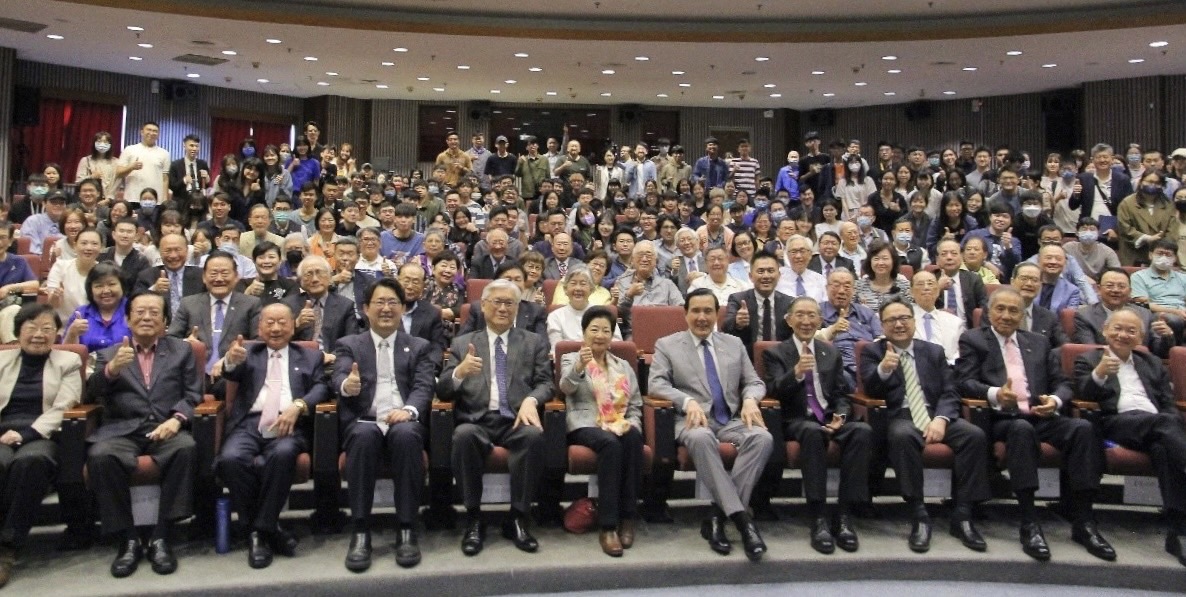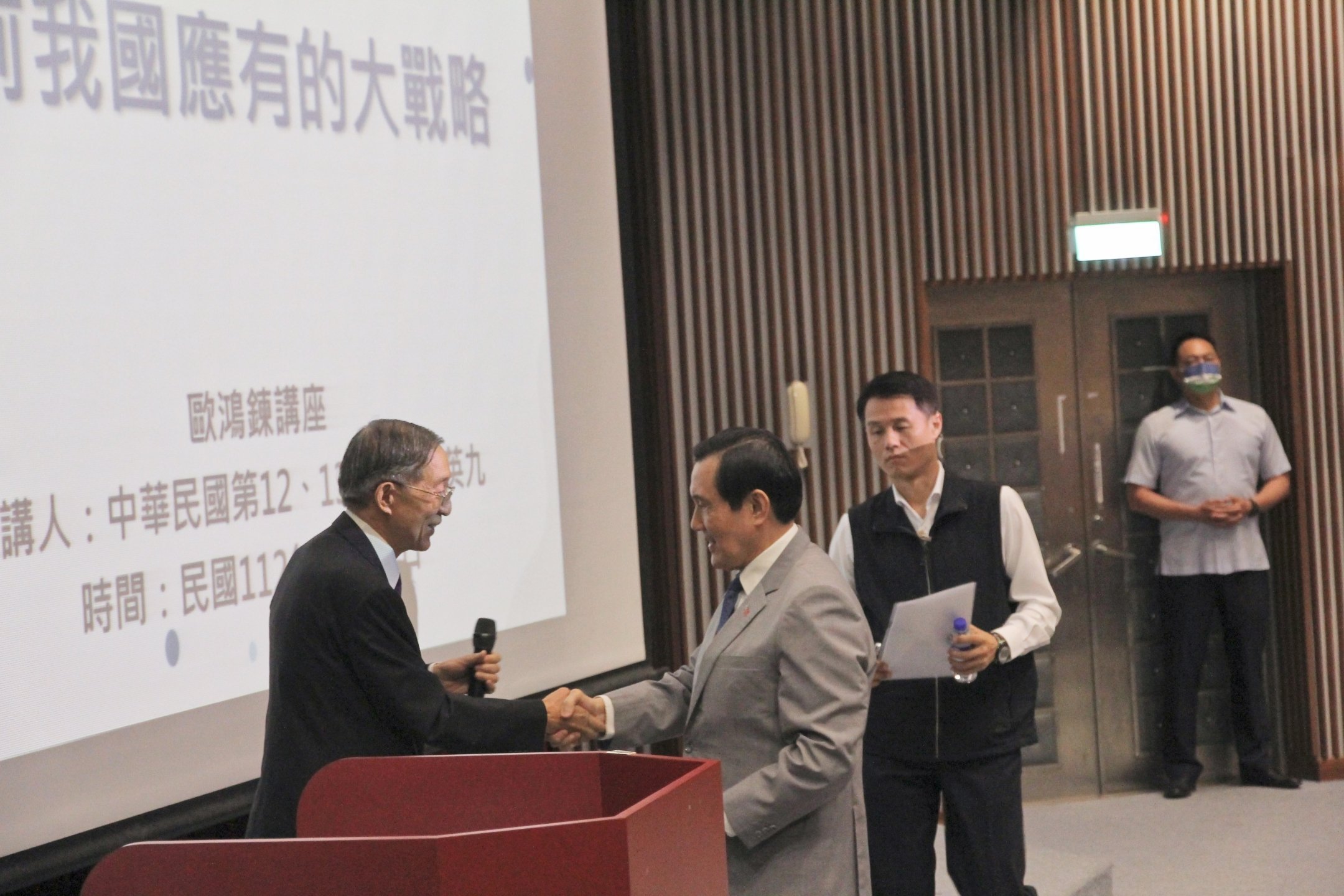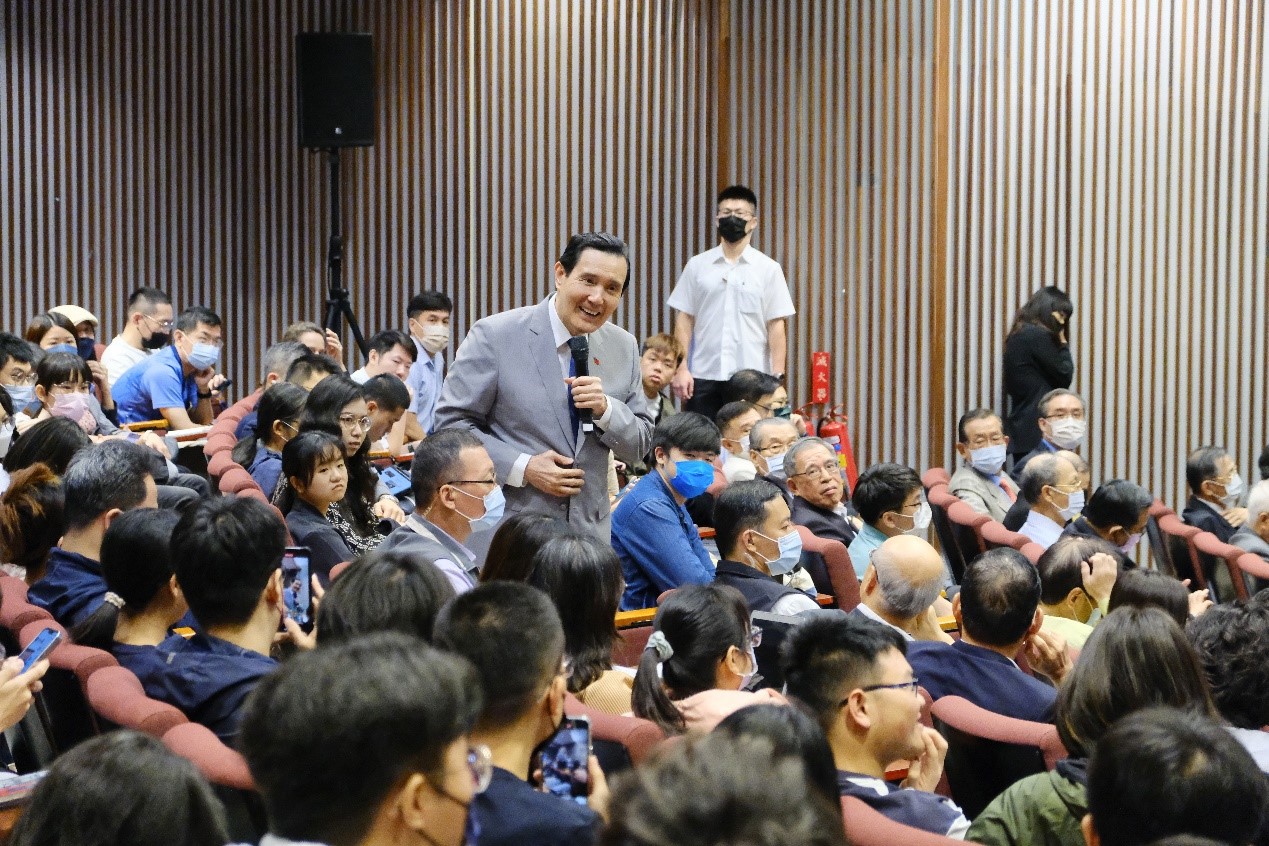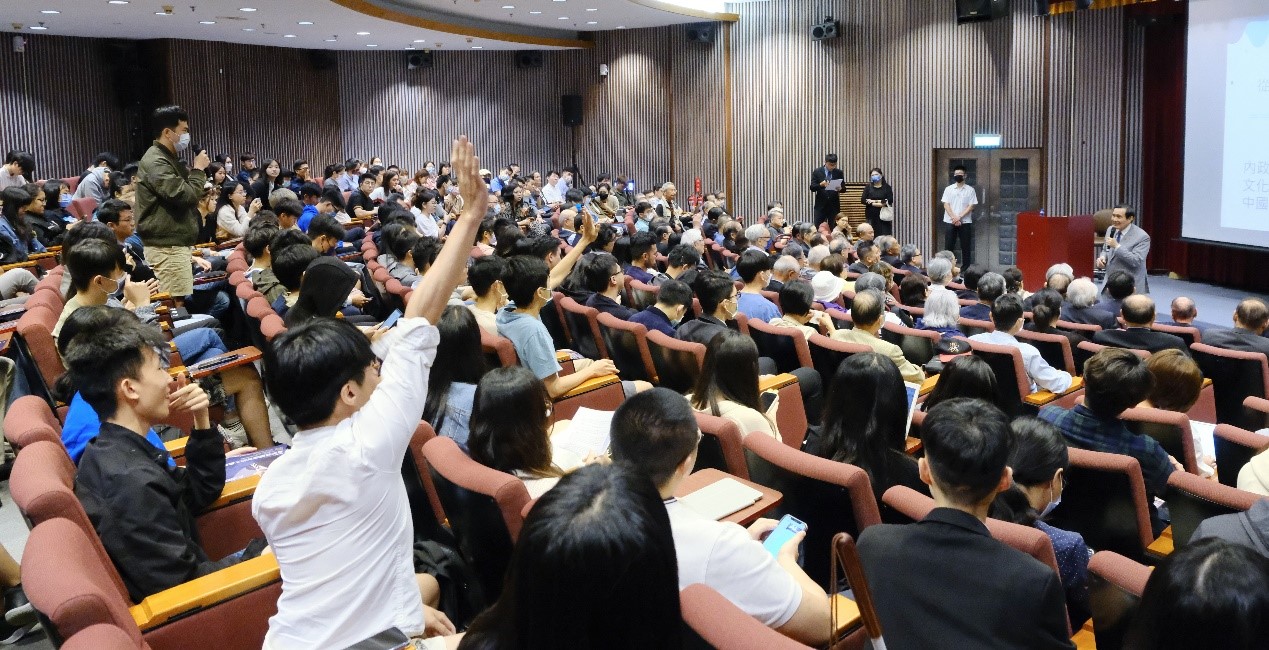The Association of Foreign Relations (AFR), Department of Diplomacy at National ChengChi University (NCCU), and the NCCU Department of Diplomacy Alumni Association jointly organized the first Francisco Ou Lecture on May 11, 2023. Dr. Ma Ying-jeou, the 12th and 13th President of the Republic of China (Taiwan), was invited as the speaker. President Ma’s speech, entitled "The Grand Strategy Our Country Should Adopt," discussed the diplomatic strategies this country should pursue, setting the tone for the following lecture series.
The inaugural Francisco Ou Lecture attracted great attention. Ambassador Francisco Ou, the founding chairman of the AFR and former Minister of Foreign Affairs, had dedicated over 40 years of his life to diplomacy, making remarkable contributions to the development of the association and the ROC’s diplomacy. To express gratitude for his dedication, AFR and the NCCU Diplomacy Department signed a memorandum of understanding on June 27, 2022, establishing the Francisco Ou Lecture Series to pass on the professionalism and spirit he brought to his work to future generations. We thank President Ma for agreeing to be the first speaker in this series of lectures, adding great significance and influence to this collaboration.
At the start of the event, AFR Chairman David Yung-lo Lin, former Minister of Foreign Affairs, delivered opening remarks, and expressed gratitude to Chairman Ou's wife and President Ma for their staunch support of the lecture. President Ma then started his speech by sharing his takes on Taiwan's future grand strategy and presented a series of inspiring perspectives.
Firstly, President Ma mentioned his close ties with NCCU and proceeded to share recent observations from his visit to mainland China. He stated that during this visit, he engaged in close exchanges with many individuals and discussed important issues regarding cross-strait relations. These visits provided him with an opportunity to gain a deeper understanding of the current state and future development of cross-strait relations.
Subsequently, President Ma looked back on the changes in cross-Strait relations over the past decade and the historical developments between Taiwan and mainland China since 1949, including political, economic, and cultural aspects. He mentioned, for example, the “823 Artillery Bombardment” and the policy of opening up for family visits between the two sides, describing how cross-Strait relations transitioned from tension to peaceful coexistence. These historical events not only represented the gradually peaceful development of cross-strait relations but also influenced the ROC's diplomacy. He emphasized that maintaining peace and stability in the Taiwan Strait is crucial and that only through peaceful and stable cross-Strait relations can Taiwan strive for possibly maximum diplomatic space and international recognition.
President Ma recounted the achievements in promoting cross-Strait exchanges and cooperation during his presidency. He mentioned the signing of several important agreements and the promotion of peaceful development in cross-Strait relations.
President Ma pointed out that Taiwan endured great hardships to move from "diplomatic shock" to "diplomatic truce" and emphasized that handling cross-Strait relations peacefully, democratically, and in accordance with the Constitution is the way for Taiwan's survival. He indicated that when it comes to cross-Strait relations, Taiwan should adopt the premises of preparing for war, avoiding war, and seeking peace in order to ensure the country's maximum security and welfare. In the field of diplomacy, the ROC's foreign aid should adhere to three principles: "legitimate objectives," "legal procedures," and "effective implementation," to achieve success and uphold the honor of the nation.
At the end of the lecture, attendees enthusiastically asked questions, expressing excitement and curiosity. Some students raised issues concerning national development, cross-Strait relations, and future challenges. The other guests in attendance expressed that this lecture not only broadened their perspectives but also provided a rare opportunity to engage with a distinguished political figure. With a lively atmosphere, the inaugural Francisco Ou Lecture concluded successfully.
The Francisco Ou Lecture Series opens a new chapter in academic exchanges and knowledge sharing. AFR will continue to organize such events, dedicating itself to providing more opportunities for in-depth research and reflection, and expanding the public’s knowledge of international relations and foreign policies.







 256 bit SSL Encryption
256 bit SSL Encryption